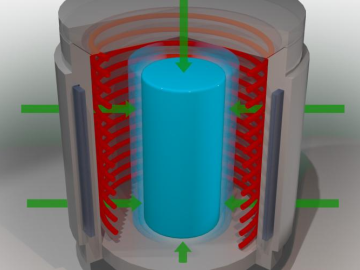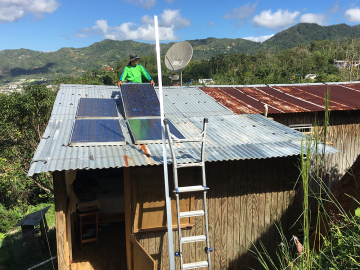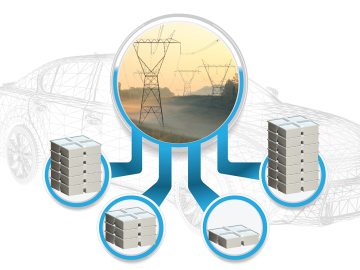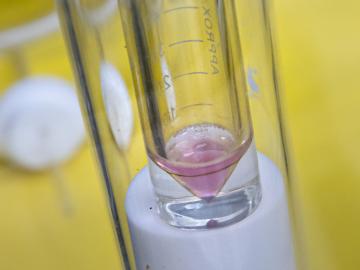
Filter News
Area of Research
News Topics
- (-) Biomedical (7)
- (-) Clean Water (5)
- (-) Critical Materials (6)
- (-) Cybersecurity (9)
- (-) Energy Storage (21)
- (-) Isotopes (11)
- (-) Mercury (2)
- (-) Nuclear Energy (21)
- (-) Space Exploration (4)
- (-) Transportation (18)
- 3-D Printing/Advanced Manufacturing (20)
- Advanced Reactors (3)
- Artificial Intelligence (26)
- Big Data (10)
- Bioenergy (22)
- Biology (29)
- Biotechnology (6)
- Buildings (14)
- Chemical Sciences (24)
- Composites (6)
- Computer Science (23)
- Coronavirus (4)
- Education (3)
- Emergency (1)
- Environment (43)
- Exascale Computing (15)
- Fossil Energy (2)
- Frontier (19)
- Fusion (9)
- Grid (16)
- High-Performance Computing (33)
- Hydropower (3)
- Irradiation (2)
- Machine Learning (15)
- Materials (59)
- Materials Science (16)
- Mathematics (2)
- Microelectronics (2)
- Microscopy (7)
- Molten Salt (1)
- Nanotechnology (7)
- National Security (21)
- Neutron Science (32)
- Partnerships (24)
- Physics (14)
- Polymers (4)
- Quantum Computing (12)
- Quantum Science (9)
- Security (3)
- Simulation (29)
- Software (1)
- Summit (9)
Media Contacts

Following months of promising test results, battery researchers at ORNL are recommending that the solid-state battery industry focus on a technique known as isostatic pressing as it looks to commercialize next-generation batteries.

Stephen Dahunsi’s desire to see more countries safely deploy nuclear energy is personal. Growing up in Nigeria, he routinely witnessed prolonged electricity blackouts as a result of unreliable energy supplies. It’s a problem he hopes future generations won’t have to experience.

Scientists at ORNL have confirmed that bacteria-killing viruses called bacteriophages deploy a sneaky tactic when targeting their hosts: They use a standard genetic code when invading bacteria, then switch to an alternate code at later stages of

ORNL researchers Ben Ollis and Max Ferrari will be in Adjuntas to join the March 18 festivities but also to hammer out more technical details of their contribution to the project: making the microgrids even more reliable.

When aging vehicle batteries lack the juice to power your car anymore, they may still hold energy. Yet it’s tough to find new uses for lithium-ion batteries with different makers, ages and sizes. A solution is urgently needed because battery recycling options are scarce.

With larger, purer shipments on a more frequent basis, Oak Ridge National Laboratory is moving closer to routine production of promethium-147. That’s thanks in part to the application of some specific research performed a decade ago for a completely different project.

U2opia Technology, a consortium of technology and administrative executives with extensive experience in both industry and defense, has exclusively licensed two technologies from ORNL that offer a new method for advanced cybersecurity monitoring in real time.

Three scientists from the Department of Energy’s Oak Ridge National Laboratory have been elected fellows of the American Association for the Advancement of Science, or AAAS.

Researchers at ORNL zoomed in on molecules designed to recover critical materials via liquid-liquid extraction — a method used by industry to separate chemically similar elements.

A partnership of ORNL, the Tennessee Department of Economic and Community Development, the Community Reuse Organization of East Tennessee and TVA that aims to attract nuclear energy-related firms to Oak Ridge has been recognized with a state and local economic development award from the Federal Laboratory Consortium.


